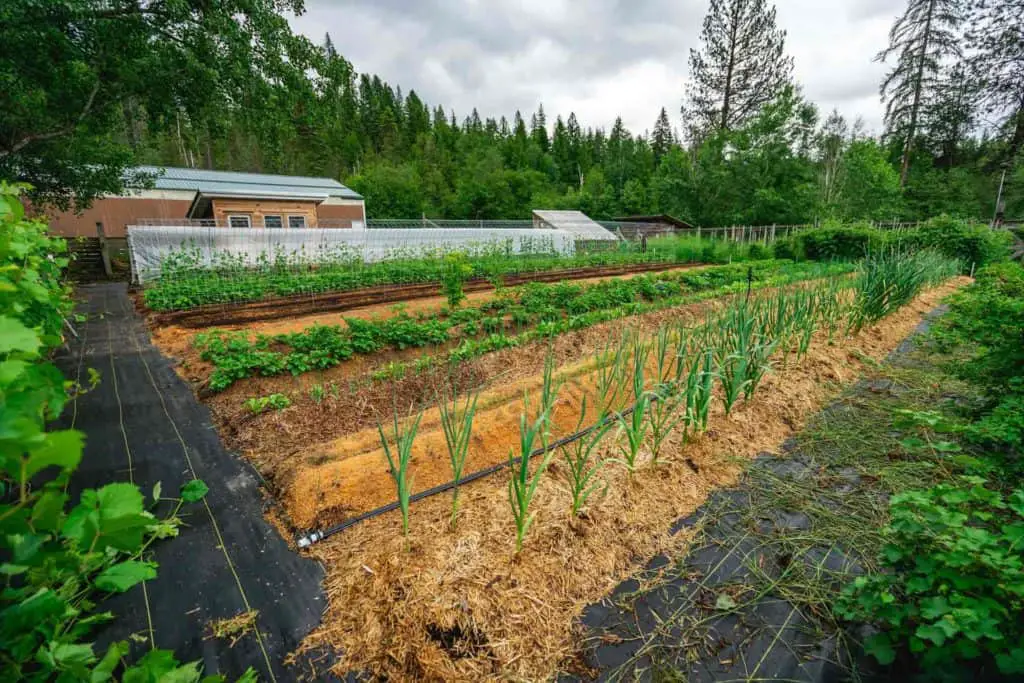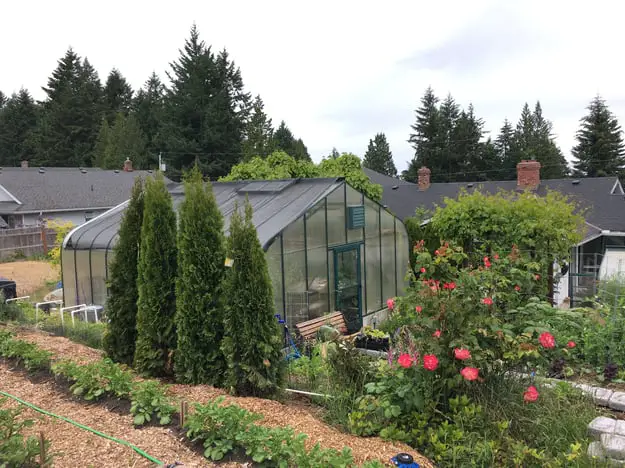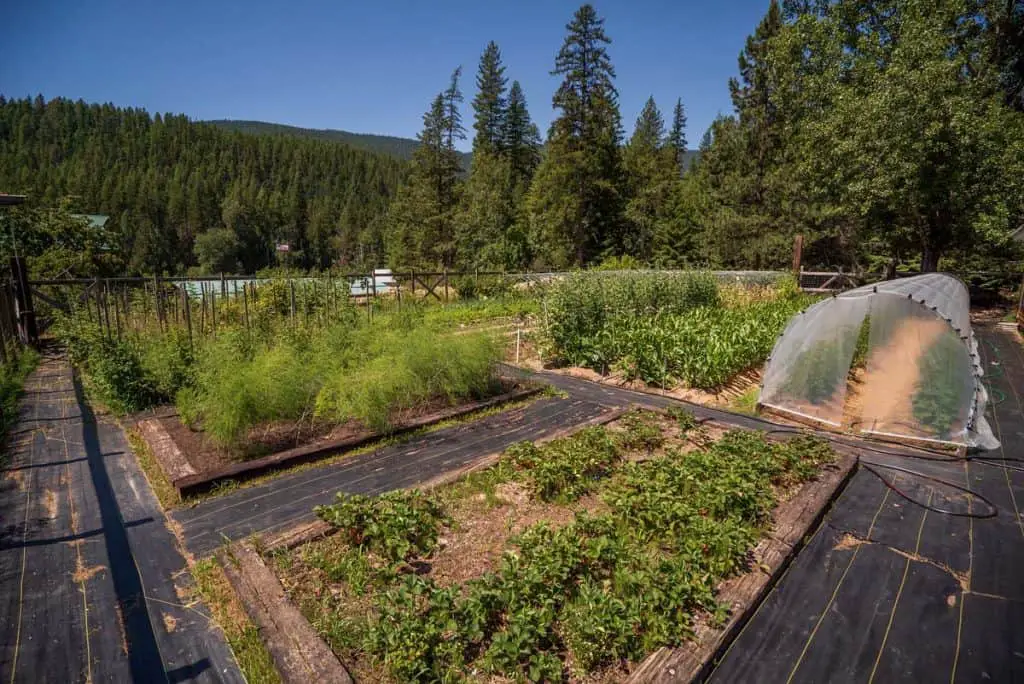Is a Water-Efficient Garden Possible?
Growing your own food can be a rewarding experience, but it can also be daunting when considering the amount of water required for gardens. However, creating a water-efficient garden is not only possible but crucial in today’s world. By implementing smart techniques and strategies, you can have a thriving garden for year-round food production without wasting precious water resources.
Understanding Water Efficiency in Gardening
Before diving into creating a water-efficient garden, it’s essential to understand what water efficiency means in gardening. Water efficiency refers to maximizing the use of water in a garden to achieve the best possible results while minimizing waste. This not only helps conserve water but also ensures the health and productivity of your plants.

Factors to Consider for Water-Efficient Gardening
To create a water-efficient garden for year-round food production, consider the following factors:
Climate and Water Availability
The climate of your region plays a significant role in determining how much water your garden will need. Consider the average rainfall, temperature, and humidity levels in your area to create a watering schedule that matches your garden’s needs. If you live in a dry climate with limited water availability, it’s crucial to focus on water-efficient gardening practices.
Soil Type and Quality
The type and quality of your soil also influence water efficiency in your garden. Sandy soils drain water quickly, while clay soils retain water for longer periods. Conduct a soil test to determine the composition and pH level of your soil to make informed decisions about watering and soil amendments.
Plant Selection
Choosing the right plants for your water-efficient garden is key to success. Opt for drought-resistant varieties that require less water and can thrive in your climate. Consider native plants that are adapted to the local environment and require minimal watering once established.
Mulching
Mulching is a simple yet effective way to conserve water in your garden. Mulch helps retain moisture in the soil, prevents evaporation, and suppresses weeds that compete for water with your plants. Use organic mulches such as straw, wood chips, or compost to improve water retention and soil health.
Irrigation Methods
Selecting the appropriate irrigation method for your garden can significantly impact water efficiency. Drip irrigation, soaker hoses, and micro-sprinklers deliver water directly to the root zone of plants, minimizing water waste through evaporation and runoff. Consider installing a rainwater harvesting system to collect and store rainwater for irrigation purposes.
Water-Efficient Gardening Techniques
Implementing water-efficient gardening techniques can help you maintain a healthy and productive garden while conserving water. Here are some tips to create a water-efficient garden for year-round food production:
Watering Wisely
Water your garden early in the morning or late in the evening to minimize evaporation losses. Water deeply but infrequently to encourage deep root growth and drought tolerance in plants. Use a watering can, hose with a shut-off nozzle, or drip irrigation system to target the root zone of plants and avoid watering foliage.
Companion Planting
Companion planting involves growing compatible plants together to benefit each other in various ways. Some plants can help conserve water by shading the soil, suppressing weeds, and attracting beneficial insects that pollinate crops. Consider planting marigolds, nasturtiums, and sunflowers alongside your vegetables to create a diverse and water-efficient garden.
Crop Rotation
Rotating crops in your garden can improve soil health, reduce pest and disease problems, and conserve water. Different crops have varying water requirements, so rotating them helps balance water usage and nutrient needs in the soil. Plan your garden layout to include crop rotations that optimize water efficiency and sustainably produce food year-round.
Vertical Gardening
Vertical gardening is a space-saving technique that maximizes growing area while conserving water. By growing plants vertically on trellises, arbors, or wall-mounted containers, you can increase air circulation, reduce water evaporation, and create a visually appealing garden. Consider growing vine crops, such as cucumbers, tomatoes, and beans, vertically to optimize water usage and production.

Choosing Water-Efficient Plants for Your Garden
Selecting water-efficient plants for your garden is essential for minimizing water usage and maximizing food production. Consider the following factors when choosing plants for a water-efficient garden:
Drought-Resistant Varieties
Choose drought-resistant plant varieties that can thrive with minimal water input. Look for plants that have adapted to arid conditions, such as lavender, rosemary, and succulents, to reduce water consumption and maintain a sustainable garden.
Native Plants
Incorporate native plants into your garden design to enhance water efficiency and support local ecosystems. Native plants are well-suited to the local climate and require little to no supplemental watering once established. Research native plant species that are edible or beneficial for pollinators to create a diverse and water-efficient garden.
Edible Perennials
Grow edible perennials in your garden to ensure year-round food production with minimal water usage. Perennials, such as fruit trees, berries, and herbs, have deep root systems that access groundwater and require less frequent watering compared to annual crops. Consider planting a variety of edible perennials to create a resilient and water-efficient garden that yields fresh produce throughout the seasons.
Maximizing Water Efficiency in Your Garden
To maximize water efficiency in your garden for year-round food production, consider the following strategies:
Soil Amendments
Improve soil structure and water retention by adding organic matter, such as compost, mulch, or aged manure, to your garden beds. Amending soil with organic materials enhances nutrient availability, promotes beneficial microbial activity, and increases water-holding capacity. Mix soil amendments into existing beds or create compost piles to recycle organic waste and enrich the soil for future plantings.
Rainwater Harvesting
Capture and store rainwater to supplement irrigation and reduce reliance on municipal water sources. Install rain barrels, cisterns, or swales to collect rainwater from roofs, driveways, or slopes and divert it to your garden. Use collected rainwater to water plants during dry periods, establish new plantings, or fill decorative ponds with non-potable water for additional water savings.
Xeriscaping
Xeriscaping is a landscaping approach that minimizes water usage and enhances landscape sustainability in arid regions. Design water-wise gardens with drought-tolerant plants, permeable hardscapes, and efficient irrigation systems to reduce water consumption and maintenance requirements. Create attractive xeriscapes that conserve water, attract wildlife, and provide functional outdoor spaces for recreational activities.

Maintaining a Water-Efficient Garden
Once you’ve established a water-efficient garden for year-round food production, it’s essential to maintain it properly to ensure continued success. Follow these tips to care for your garden and conserve water effectively:
Regular Monitoring
Monitor soil moisture levels, plant health, and irrigation systems regularly to adjust watering practices as needed. Use a soil moisture meter, visual inspection, or hand testing to determine when to water plants and how much water they require. Keep a gardening journal to track watering schedules, rainfall amounts, and plant growth throughout the seasons for better water management.
Weed Control
Control weeds in your garden to reduce competition for water, sunlight, and nutrients that can affect plant growth and productivity. Remove weeds by hand, hoe, or mulching to prevent them from depleting soil moisture and overcrowding desirable plants. Use organic weed control methods, such as mulching, smothering, or hand pulling, to minimize water loss and maintain a healthy garden ecosystem.
Pest Management
Manage pests in your garden to prevent damage to plants and reduce water loss from infestations. Identify common garden pests, such as aphids, snails, and caterpillars, and use integrated pest management (IPM) strategies to control them effectively. Monitor plants for signs of pest damage, beneficial insect activity, and disease outbreaks to intervene early and minimize water usage in pest control measures.
Seasonal Adjustments
Adjust your gardening practices seasonally to optimize water efficiency and adapt to changing weather conditions. Increase irrigation during hot, dry periods, reduce watering in cooler, rainy seasons, and protect plants from temperature extremes to maintain health and productivity. Plant drought-resistant crops, prioritize water-intensive plants, and mulch garden beds accordingly to conserve water and produce food year-round.
Conclusion
Creating a water-efficient garden for year-round food production is not only feasible but essential for sustainable living and environmental stewardship. By understanding water efficiency principles, implementing smart gardening techniques, choosing water-wise plants, and maximizing water conservation strategies, you can create a thriving garden that produces fresh food without wasting precious water resources.
Follow the tips and strategies outlined in this article to create a water-efficient garden that meets your food production needs while conserving water and promoting a healthy ecosystem. With careful planning, proper maintenance, and a commitment to sustainable gardening practices, you can enjoy the benefits of a water-efficient garden that sustains you and the environment for years to come. Happy gardening!

